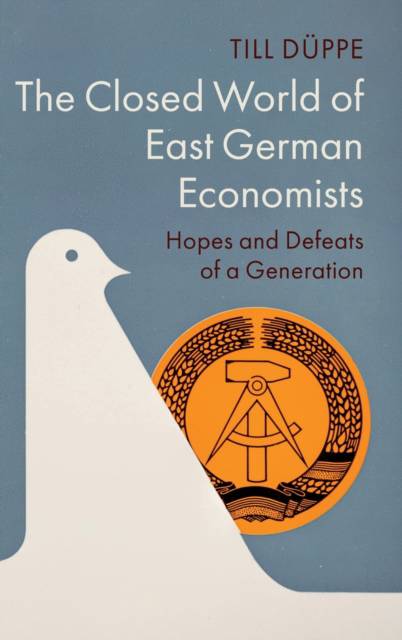
- Afhalen na 1 uur in een winkel met voorraad
- Gratis thuislevering in België vanaf € 30
- Ruim aanbod met 7 miljoen producten
- Afhalen na 1 uur in een winkel met voorraad
- Gratis thuislevering in België vanaf € 30
- Ruim aanbod met 7 miljoen producten
Zoeken
€ 180,45
+ 360 punten
Omschrijving
History is replete with examples of scientists and social scientists working under the yoke of oppressive regimes. In The Closed World of East German Economists, Till Düppe tells the story of a generation of economists whose entire careers coincided with the forty-one-year existence of the German Democratic Republic (GDR). In a micro-historical fashion, he examines the world of East German economists through the formative episodes in the lives of five different economists from this "hope" generation. Using both the perspective of the actors as expressed in interviews and archival material unknown to the actors, the book follows East German economics from the early days of the acceptance of Marxism-Leninism through to its interaction with Western economics and its eventual dissolution following the collapse of the Berlin Wall. It is fascinating insight into the challenges faced by economists in a unique period of European history.
Specificaties
Betrokkenen
- Auteur(s):
- Uitgeverij:
Inhoud
- Aantal bladzijden:
- 300
- Taal:
- Engels
- Reeks:
Eigenschappen
- Productcode (EAN):
- 9781009233095
- Verschijningsdatum:
- 11/05/2023
- Uitvoering:
- Hardcover
- Formaat:
- Genaaid
- Afmetingen:
- 152 mm x 229 mm
- Gewicht:
- 621 g

Alleen bij Standaard Boekhandel
+ 360 punten op je klantenkaart van Standaard Boekhandel
Beoordelingen
We publiceren alleen reviews die voldoen aan de voorwaarden voor reviews. Bekijk onze voorwaarden voor reviews.











